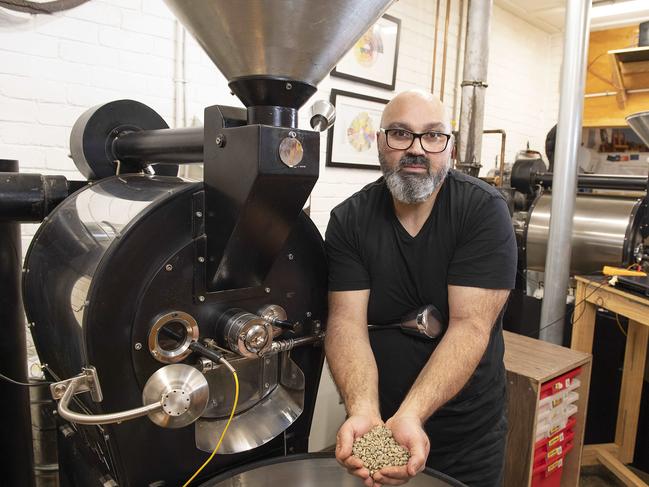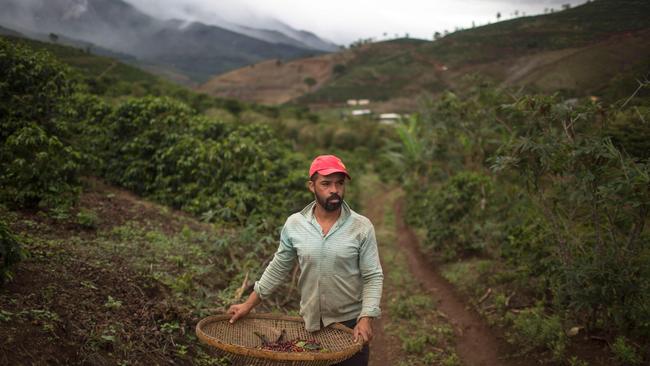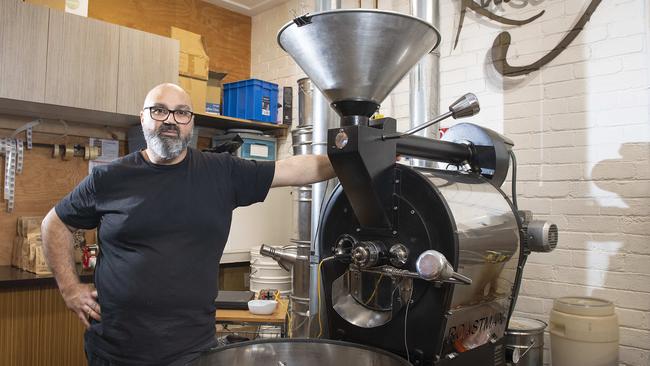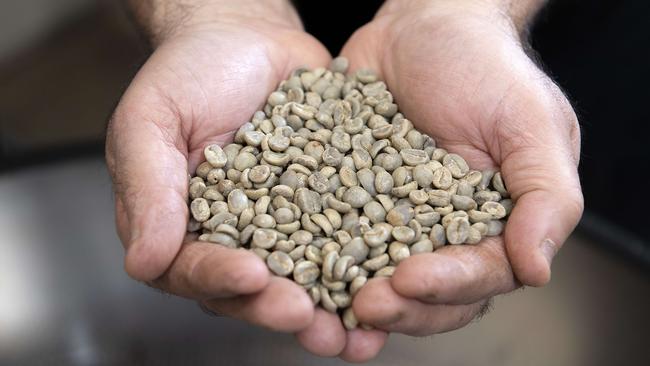How your $1 latte is killing the coffee industry
Millions of farmers in some of the poorest nations of the world are suffering because of growing exploitation in the coffee market. And doomsdayers have warned that without serious change it could spell the end to Melbourne’s drink of choice.

North
Don't miss out on the headlines from North. Followed categories will be added to My News.
Coffee doomsdayers say the exploitation of farmers is so rife throughout the industry it’s only a matter of time before the bean disappears forever.
While Victorians spend more than $2.7 billion a year on their cuppa, thousands of farmers are walking away from their crops.
This is because while coffee consumption has exploded around the world, the global coffee price hovers just below US$1 per pound.
For farmers in some of the poorest nations in the world, this price is not enough to cover the costs of the three years of hard work it takes to grow the plant.

Coffee importer Marcelo Brussi has been bringing beans from Brazil to Australia since 2012 and said the situation had never been worse.
“I was born in Brazil, my grandfather was born on a coffee farm,” he said.
“Some of the farmers are simply not planting coffee anymore, or replacing coffee. It’s not profitable anymore.
“We see that happening more and more in Brazil and in other countries. It’s not just a Brazilian problem.”
While there are large coffee growers, the majority of the world’s production comes from about 25 million small scale farms.
In August, 2018, growers from Brazil and Colombia released a joint statement pleading for action on the crisis.
The statement said the market price had created a “spiral of poverty” for producers, who were being forced to accept unfair treatment such as payment terms of more than 200 days.
Preston Red Bean Coffee Roaster owner Lou Fiasco said roasters, cafe owners and consumers all needed to do more to help out suffering growers.

“We need to wake up and understand what’s happening,” he said.
“There’s a lot of family farmers walking off the land. Their kids are no longer using coffee as a source of income. Farmers are literally cutting down the trees and saying it’s not worth it.”
Certified Fairtrade and direct trade providers work directly with growers to give a fair price for high quality coffee beans.
Mr Brussi’s importing business Minas Hill visits socially and environmentally certified farmers directly, and puts money towards social programs including the education of farming communities and the supply of their hospitals.
Mr Fiasco said coffee beans needed to go the way of chicken eggs and mirror how most people now refuse to buy from a caged farm.
“It’s no longer good enough to say ‘nice coffee, I’m paying $4 for it but I don’t know where it comes from’”, he said.
“Just ask (your barista). If they can’t answer your questions, walk away.”
Mr Brussi said consumers needed to be aware of who they were buying from and encouraged them to ask questions to see if there was a connection between the farmer and the roaster.

“Ask your roaster, importer, what the components are in a blend. If the roaster is paying a fair price and buying more expensive coffee they wouldn’t have any problems telling you what is in the blend,” he said.
Mr Brussi said without a fair price for farmers, he didn’t see a future for the beverage.
“Coffee is actually the second most consumed beverage behind water. We need to understand that someone is producing the coffee and paying for the coffee in Melbourne, and it’s not us,” he said.
“At this stage, I don’t see a better future for coffee.”
MORE NEWS: PROTESTORS “DROWN” FOR CLIMATE ACTION
POPULAR NORTHCOTE CAFE ACCUSED OF UNDERPAYMENTS
COMMUNITIES MOBILISE TO FIGHT CRIME ON FACEBOOK
Mr Fiasco said Red Bean would soon be running workshops for customers to educate them on ethical sources of coffee.
“People pay for convenience but it’s a hefty cost and it’s the environment and farmers that pay for it,” he said.
“That coffee that you love every morning might not be there for your kids, and if it is get ready to pay for it.”
